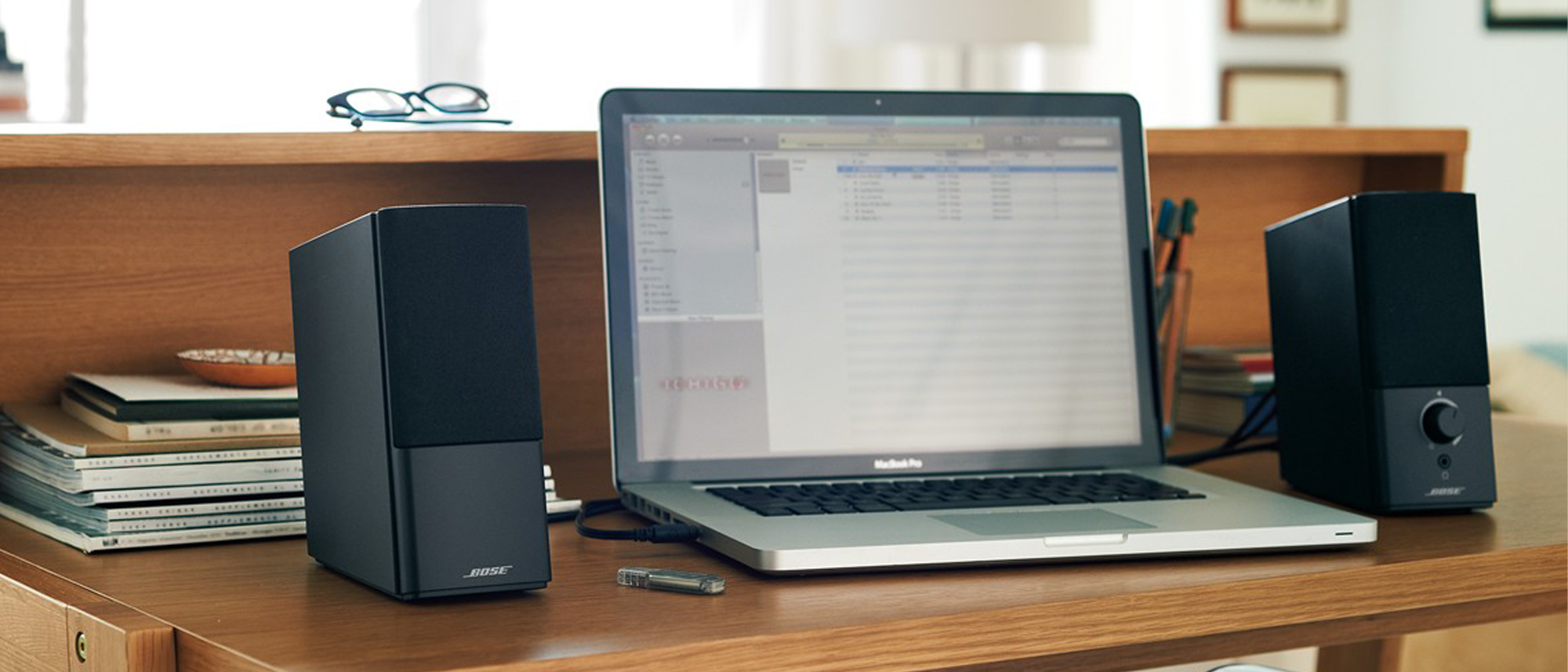Tom's Guide Verdict
Bose Companion 2 Series III sound great and aren’t too big — but lack the latest tech.
Pros
- +
Full bass without a subwoofer
- +
Big overall sound
- +
Not too big
Cons
- -
Pricey
- -
No Bluetooth or USB-C
Why you can trust Tom's Guide
Type of system: 2.0
Size: 7.5 x 5.9 x 3.1 inches
Speakers: N/A
Inputs: 3.5 mm (x 2)
If you value excellent sound and are looking to bring better audio to your desk, the Bose Companion 2 Series III are the best choice for most people. Though there are computer speakers with more features, few other speakers sound as good as these. The speakers produce good bass, without being large or needing a separate subwoofer. The Companion 2 Series III also create a wide sound — another impressive feat for speakers this size. You’ll pay a bit of a premium, but that’s the Bose way.
Read on for our full review of the Bose Companion 2 Series III.
- Our picks for best computer speakers
- Check out the best bluetooth speakers
Bose Companion 2 Series III: Price and Availability
The Bose Companion 2 Series III has been on the market since 2013 — which shows its lasting popularity, but also means it lacks some of the latest tech that newer computer speakers offer.
The Companion 2 Series III cost $149 and is available at Amazon, Best Buy, Walmart and other sites.
Bose Companion 2 Series III review: Design
With two 7.5 x 5.9 x 3.1-inch units, the Bose Companion 2 Series balances size and performance. They don’t take up too much space on your desktop, but they still deliver excellent sound. The black plastic case and black fabric speaker covers will match just about any decor, not attracting too much attention.
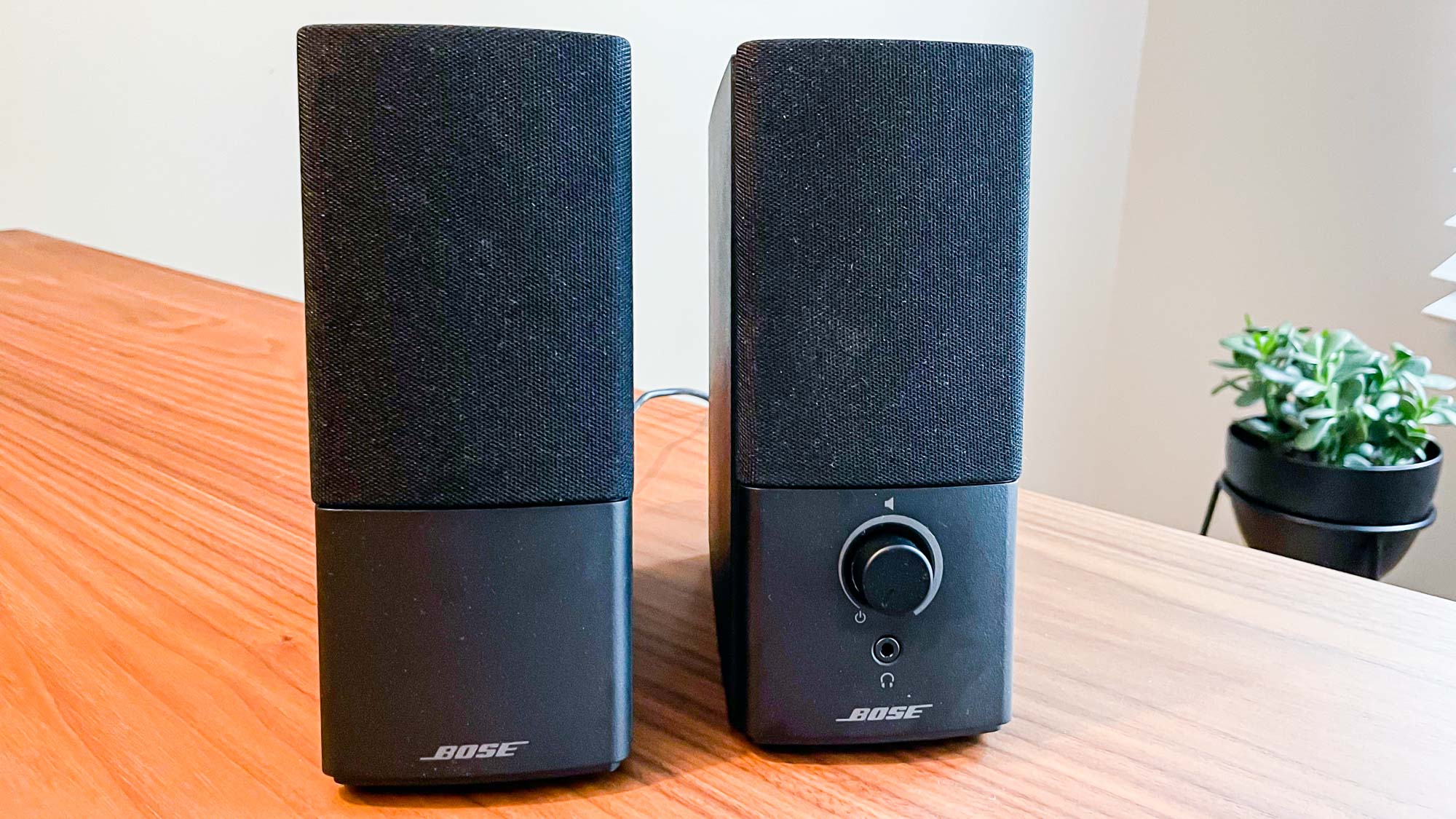
The Companion 2 Series III’s minimalism extends to its controls. The right speaker has a volume knob and headphone jack on the front — the latter is handy when you want to switch to personal listening on headphones; you won’t need to disconnect the speakers to hook up wired headphones.
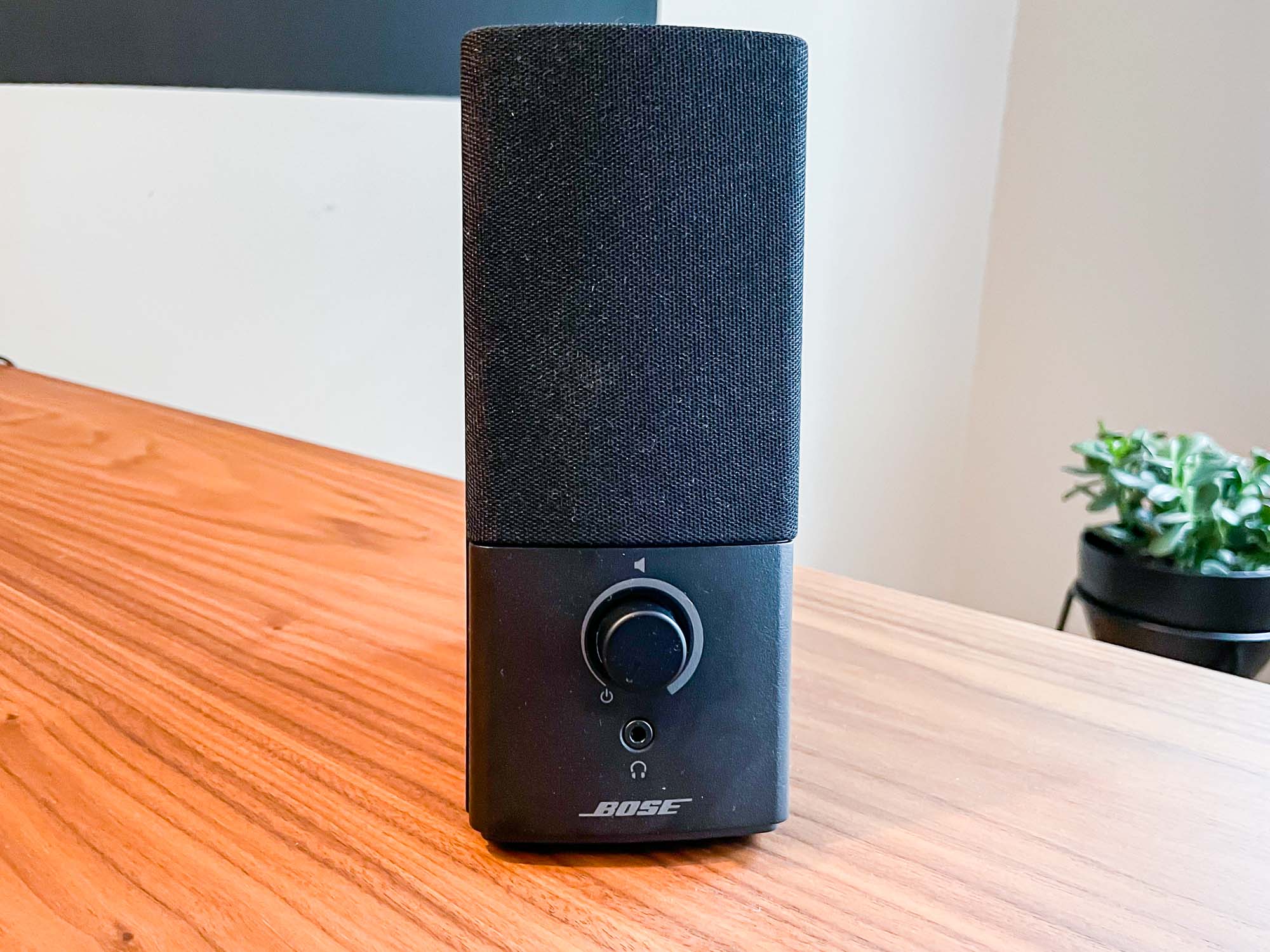
On the back, there are connections for power, two 3.5 mm inputs for audio sources and a port to connect the left speaker. The package comes with one 3.5 mm cable to connect to the headphone jack on your computer.
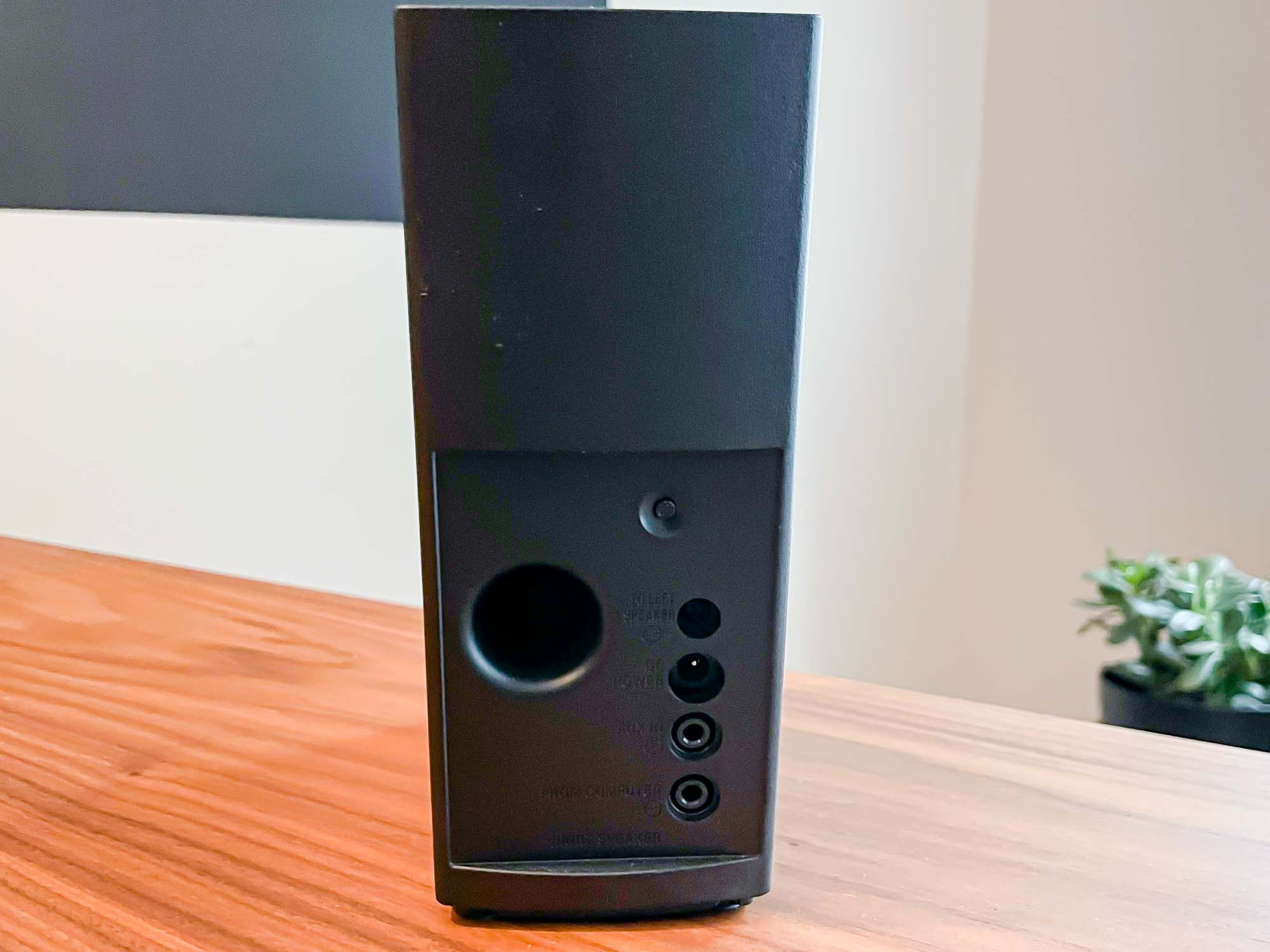
But it’s important to consider what the Companion 2 Series III doesn’t have: there’s no Bluetooth or USB, which are connections available on newer computer speakers.
Bose Companion 2 Series III review: Performance
The Companion 2 Series III creates a big sound — bigger than you’d think by looking at them. In addition to a wide soundfield, the speakers generate significant bass for speakers of this size, without the help of a subwoofer. Put those together and you get impressive audio at your desk.
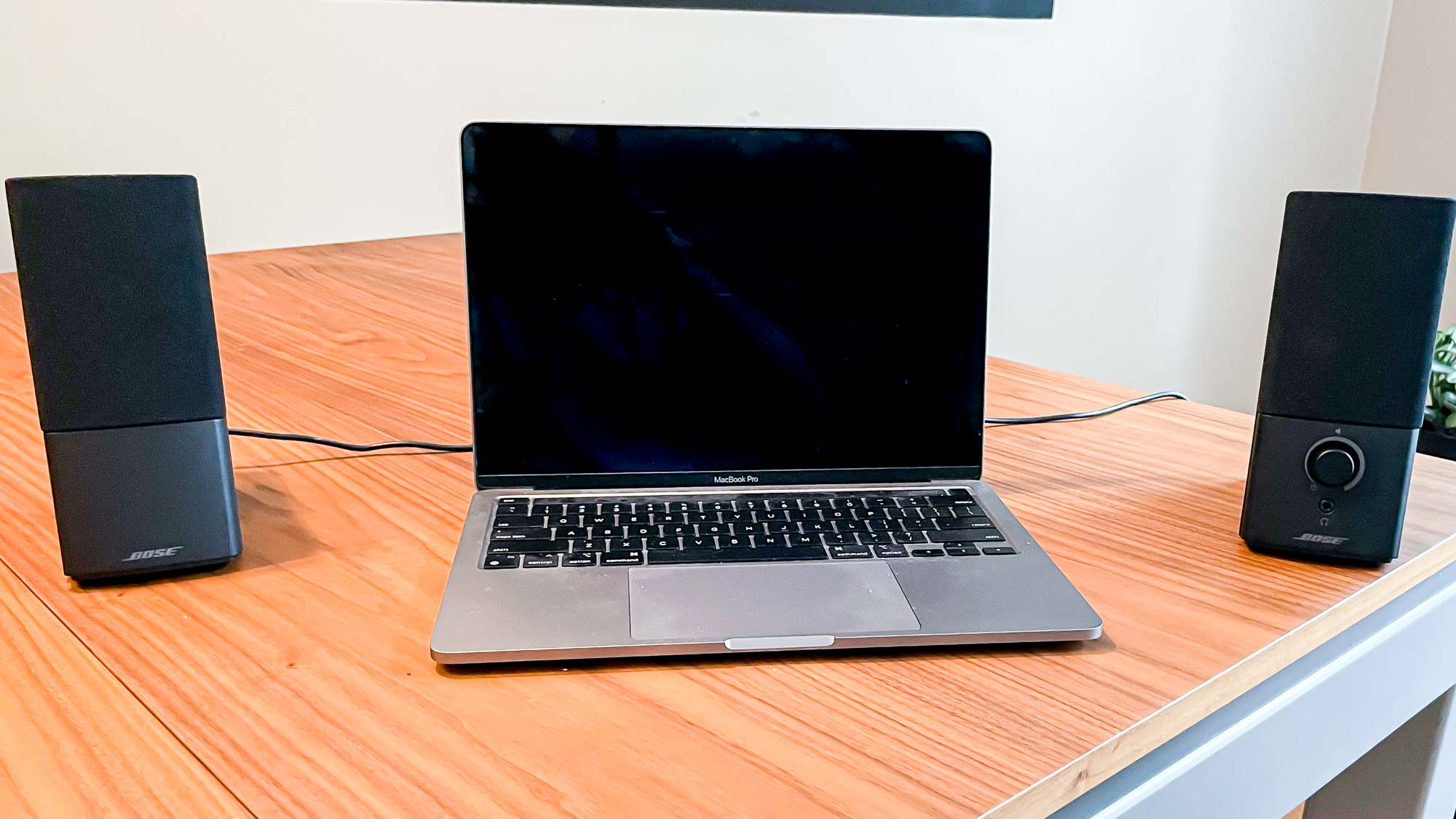
The drums on Billie Eilish’s “Therefore I Am” thumped deeply — vibrating my desk a bit — while her vocals were clear and resonant. The synths on The Weeknd’s “Blinding Lights” sounded crisp while the bass line was appropriately menacing. The cymbals on Radiohead’s “Bodysnatchers” were sharp above the distorted guitars, and the wide soundfield spaced out all the sounds, making it easy to hear each one. The acoustic guitar’s on Fleetwood Mac’s “Never Going Back Again” were bright and Lindsey Buckingham’s voice was full.
The Companion 2 Series III’s strengths work for more than music. While watching The Avengers: Infinity War, the wide sound helped make it sound like Thor’s hammer was moving across the room. The bass added resonance to podcasts such as The Daily, and even made people speaking on conference calls easier to understand.
The speakers have plenty of power if you want to rock out. At max volume they produced 90 decibels without distorting — more than enough to irritate office and house mates.
Bose Companion 2 Series III review: Setup
The Companion 2 Series III is simple to set up: connect the 3.5 cable to your computer’s headphone out or another audio source. There are no sound adjustments you can make on the speakers themselves — you have to change bass and treble levels on the audio source itself.
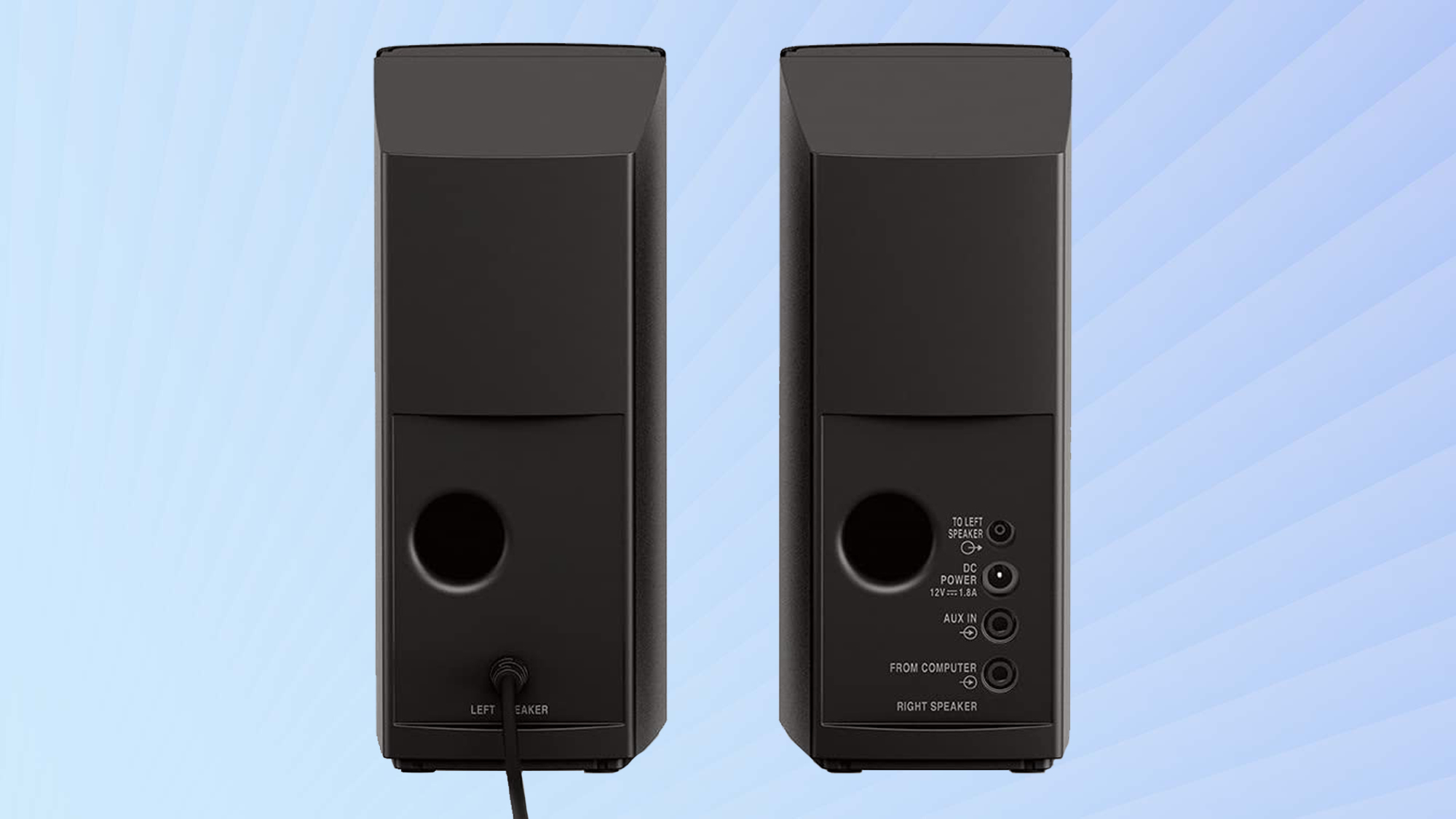
Bose recommends setting your computer volume to 75% and adjusting the volume using the dial on the right speaker. This produces the best sound from the speakers.
Bose Companion 2 Series III review: Verdict
The Bose Companion 2 Series III computer speakers are the best for most people — as long as you have a headphone output on your computer. They sound great and don’t take up too much space on your desk. But they lack Bluetooth or USB-C — something many more recently released speakers include. And, at $149, they aren’t cheap. But you get what you pay for when it comes to sound.
You could save some money by choosing Klipsch’s ProMedia 2.1 system, but they take up more space and you’ll have to find room for the subwoofer. To find a system that sounds better, you’ll need to spend much more, such $269 on the Audioengine A2+.
Or you could get yourself the Companion 2 Series III and keep it simple. You’re worth it.

Michael Gowan is a freelance technology journalist covering soundbars, TVs, and wireless speakers of all kinds of shapes and sizes for Tom’s Guide. He has written hundreds of product reviews, focusing on sound quality and value to help shoppers make informed buying decisions. Micheal has written about music and consumer technology for more than 25 years. His work has appeared in publications including CNN, Wired, Men’s Journal, PC World and Macworld. When Michael’s not reviewing speakers, he’s probably listening to one anyway.
